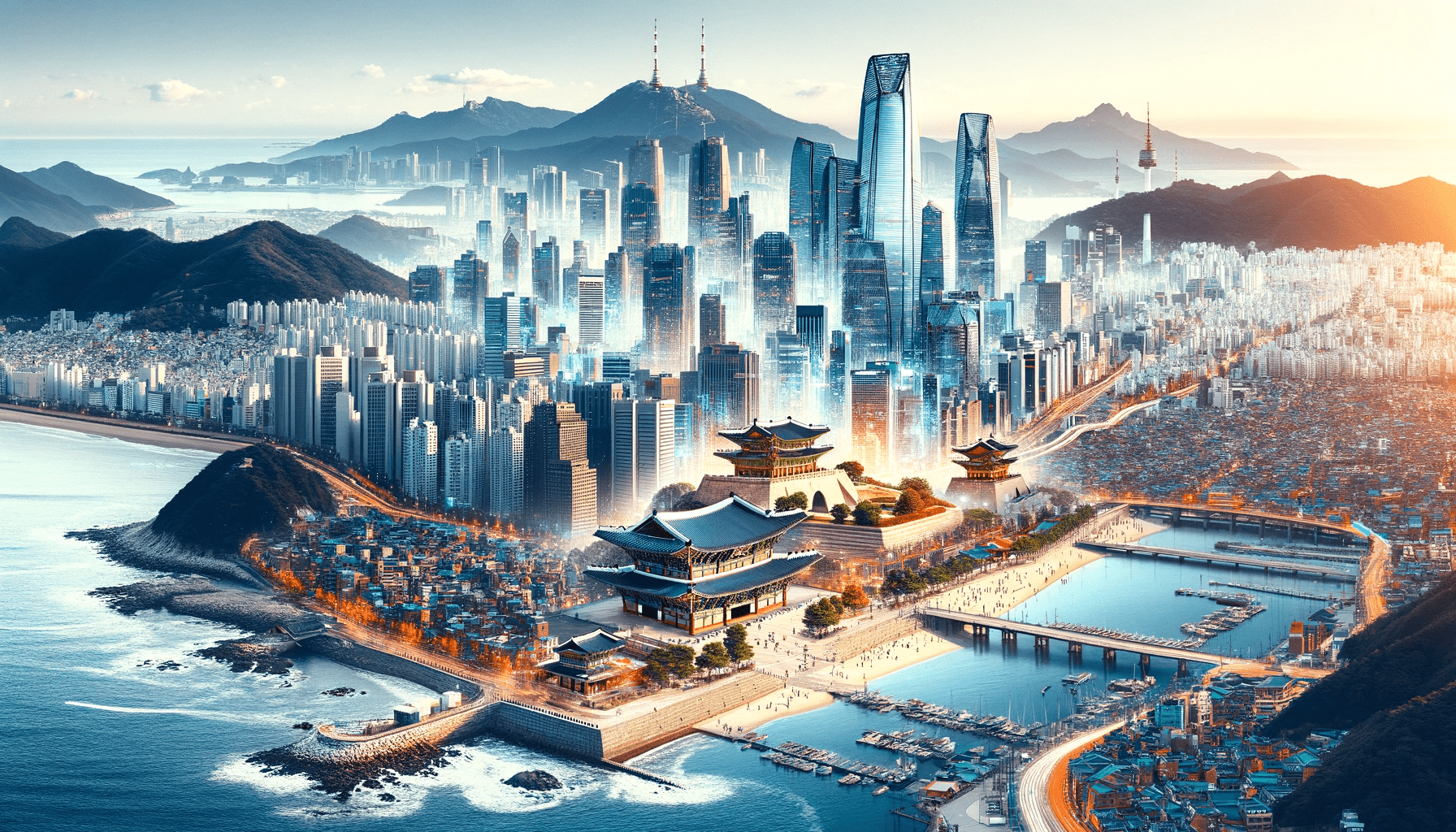Busan, South Korea – The World’s Best Cities Report 2024 not only spotlights Busan’s unique approach to urban development but also positions it within a broader context of Asian cities, each with its distinctive strengths and challenges.
Busan, ranking 67th globally, stands out for its blend of natural beauty, cultural heritage, and sustainable urban growth. This ranking, impressive for its distinct approach, places Busan in an interesting juxtaposition with other Asian cities.
Seoul, South Korea’s capital, ranks impressively at 10th globally. Known for its vibrant mix of tradition and modernity, Seoul excels in technological innovation, economic growth, and cultural richness. Seoul’s high ranking demonstrates its success in balancing historical heritage with cutting-edge urban development, setting a high bar for other Asian cities.
Comparison with Other Prominent Asian Cities
- Tokyo (Rank: 3rd): A Technological Marvel Tokyo, ranked 3rd, exemplifies the pinnacle of technological advancement and urban efficiency. However, Tokyo’s focus on technology and economic might sometimes comes at the cost of environmental and cultural considerations, an area where Busan excels.
- Singapore (Rank: 5th): The Economic Dynamo Singapore, standing at 5th place, is renowned for its economic stability, strategic location, and urban planning. While Singapore excels in economic and infrastructural realms, it faces challenges in cultural diversity and environmental sustainability, aspects where Busan has made significant strides.
- Kyoto (Rank: 35th): The Cultural Heartland Kyoto, with a rank of 35th, is celebrated for its historical significance and cultural richness. While Kyoto thrives as a cultural and historical hub, it faces the challenge of integrating modern urban development without losing its historical essence, a balance that Busan is navigating adeptly.
- Bangkok (Rank: 41st): The Cultural Mosaic Bangkok, ranked 41st, is known for its vibrant culture and bustling street life. However, Bangkok’s struggle with urban congestion and environmental issues contrasts with Busan’s more balanced urban development approach.
Development Strategies of Busan and Seoul
Busan: A Model of Cultural Harmony and Sustainable Growth
Busan’s ascent in the global urban hierarchy is a testament to its strategic emphasis on several key areas:
- Cultural Events and Heritage:: The city has successfully positioned itself as a cultural hub, primarily through events like the Busan International Film Festival. This festival not only boosts tourism but also places Busan on the global cultural map. Additionally, the city’s preservation of historical sites and promotion of cultural heritage further enriches its urban fabric.
- Sustainable Urban Development: Busan’s approach to urban development is distinctly marked by its commitment to sustainability. This involves careful integration of green spaces within urban areas, promoting environmental awareness, and implementing policies that balance urban growth with ecological preservation, particularly in its coastal and mountainous regions.
- Modern Infrastructure and Technology: Despite its strong cultural focus, Busan has not neglected the importance of modern infrastructure. The city has made significant investments in transport networks, smart city technologies, and public amenities, ensuring that the urban landscape is both functional and aesthetically pleasing.
Seoul: A Fusion of Tradition and Modernity
Seoul, on the other hand, stands as a beacon of technological and economic progress, while skillfully weaving in its rich historical tapestry:
- Technological Innovation and Economic Growth: Seoul is a powerhouse of technological advancement, home to some of the world’s leading tech companies. This technological edge, combined with robust economic policies, has propelled the city into a global economic leader. The city’s focus on innovation is not just limited to industry but also includes urban solutions like smart transportation and energy-efficient buildings.
- Historical Integration in Urban Planning: Unlike many modern metropolises that overshadow their historical roots, Seoul has skillfully integrated its rich history into its urban landscape. This is evident in the preservation of historical sites like Gyeongbokgung Palace and Bukchon Hanok Village amidst the sprawling urban area, creating a unique blend of old and new.
- Cultural Vibrancy and Global Appeal: Seoul’s cultural scene is as vibrant as its technological one. From K-pop to Korean cuisine, the city has leveraged its cultural assets to enhance its global appeal. This cultural vibrancy is not just limited to entertainment but extends to art, fashion, and literature, making Seoul a comprehensive cultural capital.
Busan’s model presents an alternative path to urban excellence, one that does not solely hinge on economic prowess or technological advancement but incorporates cultural richness and environmental sustainability.
The World’s Best Cities Report 2024 reveals the diverse strategies and challenges of Asian cities in their quest for global recognition. Busan’s rank and approach place it as a compelling example of how cities can achieve a harmonious balance between modernization and cultural-environmental preservation, offering lessons for other cities in the region and beyond.



